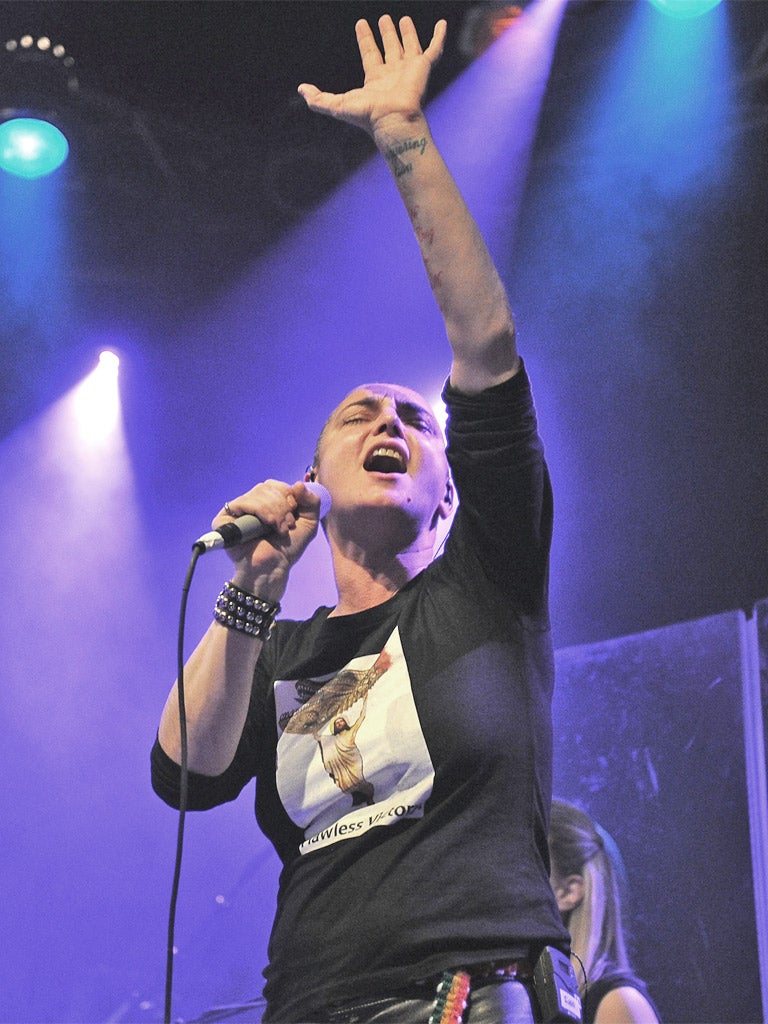The Week In Radio: Nothing compares to chatty Sinéad's musical memories

Your support helps us to tell the story
From reproductive rights to climate change to Big Tech, The Independent is on the ground when the story is developing. Whether it's investigating the financials of Elon Musk's pro-Trump PAC or producing our latest documentary, 'The A Word', which shines a light on the American women fighting for reproductive rights, we know how important it is to parse out the facts from the messaging.
At such a critical moment in US history, we need reporters on the ground. Your donation allows us to keep sending journalists to speak to both sides of the story.
The Independent is trusted by Americans across the entire political spectrum. And unlike many other quality news outlets, we choose not to lock Americans out of our reporting and analysis with paywalls. We believe quality journalism should be available to everyone, paid for by those who can afford it.
Your support makes all the difference.Interviewing pop musicians can be a thankless task. I know this as I've interviewed a few of them myself. Their talents usually lie not in talking but in compacting their thoughts into three-minute pop songs, and getting them to explain what they do can be like trying to trap water in a sieve.
The Irish singer-songwriter Sinéad O'Connor was the exception to the rule, however. On BBC6 Music's interview series The First Time With…, in which artists reflect on their favourite records, she talked and talked and then she talked some more. She did this without pause or punctuation and possibly without even breathing. She was, despite her fevered delivery, utterly hypnotising.
O'Connor has a reputation for being difficult, eccentric, possibly stark raving mad, but here she was being thoughtful and funny and bursting with wisdom about the realities of overnight fame and what it's like to be surrounded by strangers who can't do enough for you but are doing so entirely in their own interests.
"Suddenly you're on this conveyor belt but it's other people taking you along this journey of what they want you to be," O'Connor explained. "You've got these new people who are not reflecting back at you who you really are but more what they want you to be. And what they want is for you to pay their mortgage."
Along with her career, O'Connor discussed her childhood, the death of her mother, theocracy, reggae music, John Lennon (she can, amazingly, remember hearing Shaved Fish as a baby in her cot) and not giving a damn about what other people think of her. She also talked of the infamous moment when she ripped up a picture of the Pope on Saturday Night Live. As she emerged from the studio, a baying mob was waiting for her but O'Connor chased them away. She actually cornered them at the end of the street and forced them to apologise for calling her names.
I mean no disrespect to presenter Matt Everitt when I say that he didn't have to do a thing. While he put his feet up, O'Connor pretty much interviewed herself. She had a terrific way with words. Reflecting on her musical hero Bob Dylan, she said: "There are certain people in the world who, when you look at them, you know there's a God."
It wasn't a surprise to learn that the "dustbowl troubadour" Woody Guthrie was capable of holding his own in conversation. He was, said Pete Seeger, one of the interviewees in Radio 4's Woody at 100, "a great wit. You could never get him in a corner because he could always fight his way out with his tongue." To celebrate Guthrie's birth centenary, his biographer Joe Klein decided to take road trip to see to what extent his songs still resonate today.
His journey took him 3,000 miles from North Carolina to the Great Lakes, talking to ordinary Americans along the way. In the Midwest, he met ex-heroin addicts, people living on the breadline and priests trying to help out their down-at-heel neighbours. There was anger at bankers, big business and racial intolerance. These were, of course, issues dealt with by Guthrie more than 60 years ago. It was a moving documentary that told you as much about the most powerful country on Earth as the somewhat eccentric musician who did what he could to heal it.
Marking the 50th anniversary of the Rolling Stones' first gig, BBC6 Music revisited At Home with Keith Richards, in which the guitar legend talked about his life from his home in the middle of a nature reserve in Connecticut. If it sounded for a moment like we were in Hello! magazine territory, as interviewer Paul Sexton complimented Richards' on his beautiful home, this was swiftly disabused by Richards' long raspy chuckle that spoke of barbecued lungs and half a century of studious mayhem.
Join our commenting forum
Join thought-provoking conversations, follow other Independent readers and see their replies
Comments